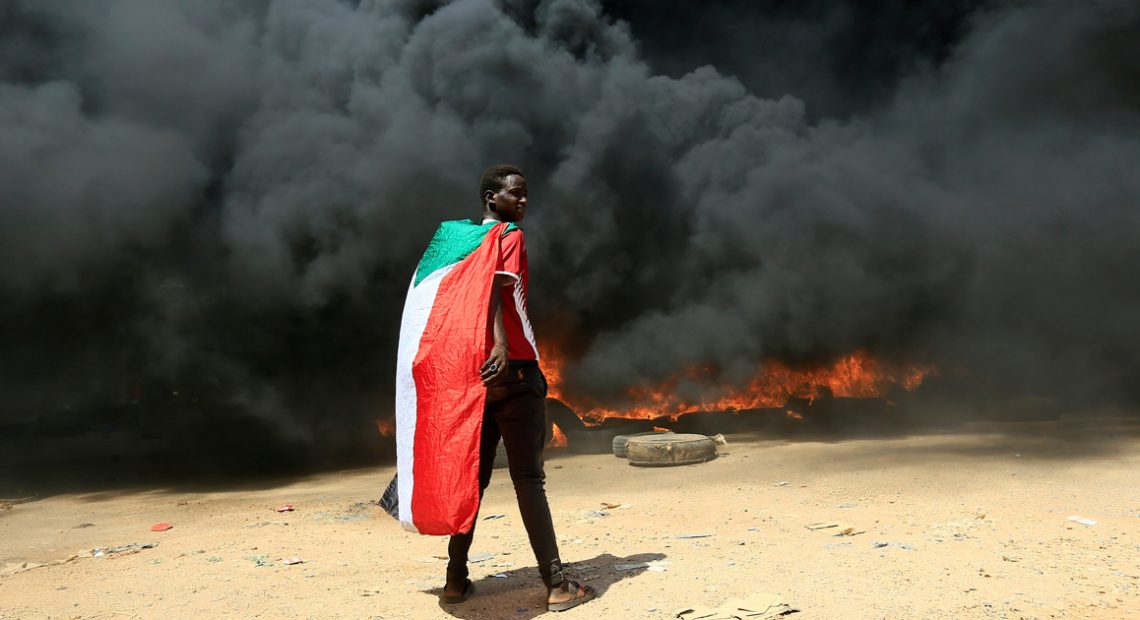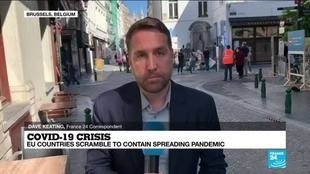Protecting Democracy In Africa: A Priority

On the African continent, “a progressive deterioration of democracy” is underway compared to ten years ago, with abrupt steps backwards also in terms of security, respect for human rights, participation and inclusion. The deterioration of these political and social cornerstones is recorded in the 2022 report on “African governance”, the Ibrahim Index of African Governance (IIAG), drawn up precisely by the Mo Ibrahim Foundation (a wealthy Sudanese entrepreneur who has been promoting democracy and political responsibility in Africa), just published, but based on data collected until the end of 2021. In other words: the situation today, in all probability, is even worse. “Violence against civilians and political unrest have increased across Africa since the start of the pandemic, with governments often using restrictions to crack down on dissent,” the report, which is released every two years, reads. Among the causes he indicates the dramatic consequences of the climate crisis, which continues to cause droughts (especially in the Horn of Africa region) and devastating floods, putting the lives of millions of people at risk. And the war in Ukraine, which has produced a deep shortage of raw materials and a consequent surge in consumer prices.
Agenda 2063: Increasingly Distant Objectives
The Ibrahim Index focuses on 4 main categories (security and rule of law, participation and human rights, sustainable economic opportunities and human development) and 16 specific sub-categories. All data is collected from sources that the Foundation itself certifies as “independent”. The photograph that comes out is disturbing. According to Mo Ibrahim himself, who presented the report, the current general insecurity and the setback of democratic gains could represent a serious threat for the future: «If we don’t tackle this trend quickly, the years of progress we have witnessed could be lost and Africa would not be able to meet the Sustainable Development Goals set by the United Nations and the African Union’s Agenda 2063 in due time. The reference to Agenda 2063 is a precise warning: it is the operational plan, signed in 2015 in Addis Ababa by the Assembly of Heads of State and Government of the African Union, which outlines the “development trajectory” for the continent Africa, with the aim of transforming it, in the long term, into the “global power of the future”. An ambitious plan that sets some priority and shared goals, among which the political integration of the States (to the point of creating a confederate Africa), political independence from foreign powers, economic development (which should tend to get as close as possible to poverty eradication), improving democracy and justice systems, establishing peace and security, as well as sustainability, quality education and basic services, gender equality, inclusiveness and establishing a number of joint financial institutions (such as the African Central Bank, an African Investment Bank, a Pan-African Stock Exchange and an African Monetary Fund). Not to mention the infrastructure projects, such as the high-speed train network that should connect all the capitals of the continent. It seems like leafing through a beautiful book of dreams, which today collides with a much more bitter reality.
The Dramatic Increase in Coups
“These are difficult times,” Mo Ibrahim warned. «Today more than ever the commitment to strengthen governance must be renewed, before losing all the progress achieved in the last ten years. Our continent is uniquely exposed to the converging impacts of climate change, most recently the pandemic, and now also the indirect impact of the Russia-Ukraine war. Governments are faced with the continued lack of prospects for our young people, worsening food insecurity indicators, lack of access to energy for almost half of the overall population, heavier debt burdens and above all growing internal turmoil. Coups d’état are on the increase again, and the anti-democratic drift is spreading. Governments should focus on fostering strong institutions and good leadership: it will be crucial not only for tackling the current crises, but also for the challenges ahead.
The results of the IIAG 2022 not only do not bode well, but they tell a reality that is diametrically opposite to those objectives. Evident signs of retreat have been registered in the areas of “security and the rule of law”, and “participation and human rights”. With an impressive increase in recent years of coups by military figures, often supported by Islamist groups: from Burkina Faso (two coups in 2022, one in January, the other in September) to Mali (in May last year the ruling military junta claimed to have thwarted a new coup by army officers backed by an unspecified foreign state). Then in Guinea, in Chad, in Sudan. And often not even the generals themselves manage to guarantee some form of security and stability, which translates into clashes with the population, with the usual toll of deaths, to be counted in the hundreds, at best. The scourge of Islamic terrorism in Africa was published at the end of the year by the Turkish radio-TV network, TRT World, which thus describes the situation of chaos and insecurity. “The Al Qaeda-affiliated terrorist group Al Shabab, which has fought the government in Somalia for years, has continued to wreak havoc on the country. They continued to place explosives on roads and cars which killed and injured hundreds of civilians. Terrorist groups also continued to operate in northern Nigeria, the Sahel region and northern Mozambique, inflicting pain on communities. Meanwhile, in March, a gang in Nigeria attacked a train and took several passengers hostage, demanding a ransom. Kidnapping for ransom has become common in Nigeria. In the Great Lakes region, thousands of people continued to flee their homes in eastern Congo (Democratic Republic of Congo) following renewed clashes between M23 rebels and the Congolese army. The DRC accuses Rwanda of supporting the rebels, which Kigali denies.’
Meanwhile, the “weight” of foreign forces in African countries continues to grow. Russia has various military cooperation agreements in place (with Mali, the Central African Republic, Libya, Sudan, Mozambique), with the sale of arms and training of local armed forces, even with the deployment of troops, often mercenaries of the Wagner group, in the places of crisis (and precisely in the Central African Republic there are reports of clashes in these hours with the rebel militias for control of the gold mines). A deep-rooted influence, often underground, which nonetheless emerged clearly after the invasion of Ukraine decided by Putin: last April’s UN resolution, which suspended Russia’s membership of the United Nations Human Rights Council, received the vote against 9 African states, but another 24 abstained, and a further 11 did not participate in the vote (here the list): 44 countries out of a total of 54. And if from a military point of view the presence of Russia is the main one, from a commercial point of view it is China that dominates: with Xi Jinping who, again in 2018, had announced the delivery of 60 billion dollars in aid and loans to African states without asking for “political counterparts”.
Mauritius and Seychelles Top The Table
This, broadly speaking, is the picture that emerges from the research, which however also highlights some positive sides: from 2012 to today, important progress has emerged in the construction of infrastructures across the continent, greater equality for women and progress in health , education and environmental sustainability. At the top of the general ranking, therefore excellence in “governance” taking into consideration the sum of all indicators, there is the Republic of Mauritius, an African island state in the Indian Ocean, territories of extraordinary beauty, a former colony of the United Kingdom (independent since 1968), with an economy based above all on tourism and the cultivation of sugar cane, and with a sharply growing GDP after the sudden slowdown in 2020, when the pandemic paralyzed travel and travel. In second position there is another pearl of tourism, Seychelles, which has obtained very high scores in the “human development” category. In third place there is instead a sensational inconsistency: Tunisia, which is experiencing dramatic hours, with an economic crisis that cuts off the legs of the population, and an autocrat president, Kais Saied, who after deposing, in 2021, the head of the government and dismissed the ministers of defense and justice (due to an excess of cases of corruption, he justified himself), he suspended the activity of Parliament and assumed the leadership of the executive power himself. Subsequently, in July 2022, he approved a new Constitution in which a hyper-presidentialism is established, with Parliament and the judiciary forced to play a very marginal role. In the second round of the political elections, a few days ago, there was confirmation of the sensational protest of the Tunisians against President Saied: they simply refused to participate in the vote: the turnout stopped for the second consecutive time at 11%. A participation so low that it makes no sense to speak of democracy. Even less so after the recent news of the arrest of an official of the UGTT, the powerful trade union of Tunisian workers (over one million members) which has openly sided against the actions of the president, intending to enact the very strict austerity measures imposed by the International Monetary Fund in exchange for a 1.9 million dollar loan. It is clear that Tunisia, in the next Ibrahim report, risks slipping down.
Emergency in Nigeria: Even The Elections Are at Risk
At the bottom of the ranking we find South Sudan (battered by civil war, where Pope Francis will arrive tomorrow, after having stopped in the Democratic Republic of Congo, on his “pilgrimage of peace”), preceded, going up again, by Somalia, Eritrea, Congo , Sudan, Central African Republic, Cameroon, Burundi, Libya and Equatorial Guinea. Another surprise, again due to the evolution of the “crises” in 2022: this list does not include Nigeria, which is experiencing a dramatic escalation of violence, especially in the south-east of the country at the hands of secessionist armed groups who are even putting risk the regular conduct of the next presidential elections, scheduled for February 25th.
More than 100 police officers have been killed since the beginning of 2021. Local media attribute the responsibility for these assaults to the diverse group IPOB (Indigenous People of Biafra) or to its armed wing, the Eastern Security Network (ESN). Not to mention the plague of kidnappings. But urban violence is now widespread everywhere, as the ISS (Institute for Security Studies) points out: «Bandits and gangs are widespread in the North West; separatist agitators are causing conflict in the southeast; a herder-farmer crisis is underway in the north-central states.
The two factions of Boko Haram have expanded from the North East states to the North West and North West Central. Corruption and abuse of security spending exacerbates the security crisis in Nigeria. Funds are provided to federal, state and local government officials who are free to disburse at their discretion. Transparency International estimates that “covert and non-cash expenses” amount to more than $670 million annually.
The situation of the African continent appears, as a whole, dramatic. Proof of this is the lack of award, in the last two years, of the annual prize that the Mo Ibrahim Foundation has decided to give to the African leader, provided that he is democratically elected, who fought the most for respect for the rule of law, who gave the most evidence of good governance. From 2007 to today, the recognition, which involves a “reward” of 5 million dollars, has been awarded only 6 times. The last time was in 2020, with the award given to the president of Niger, Mahamadou Issoufou. From the words of Mo Ibrahim, interviewed a few days ago by Reuters, bitterness transpires: «We have not caused climate change, but we are affected by it. We didn’t start the war in Ukraine, but we are affected by it. We are not to blame for the spread of Covid, but we are affected by it. Then we have cases of bad governance. And we are responsible for this.”
This article is originally published on ilbolive.unipd.it



